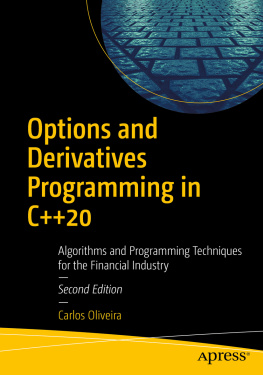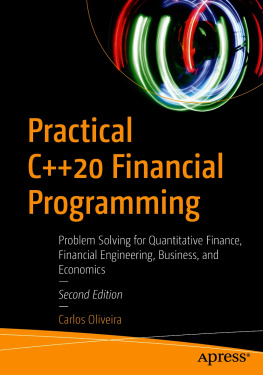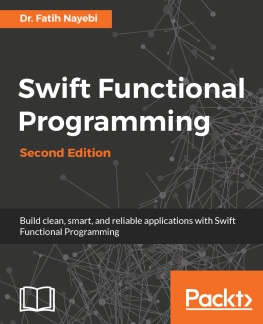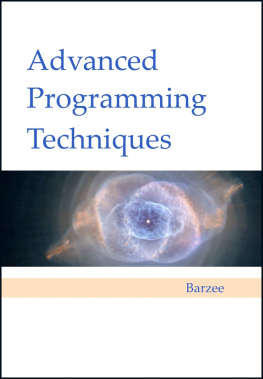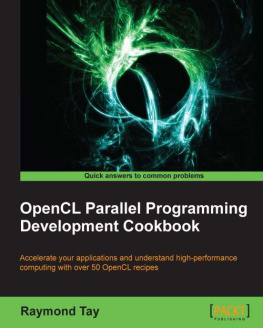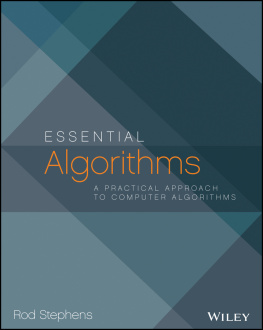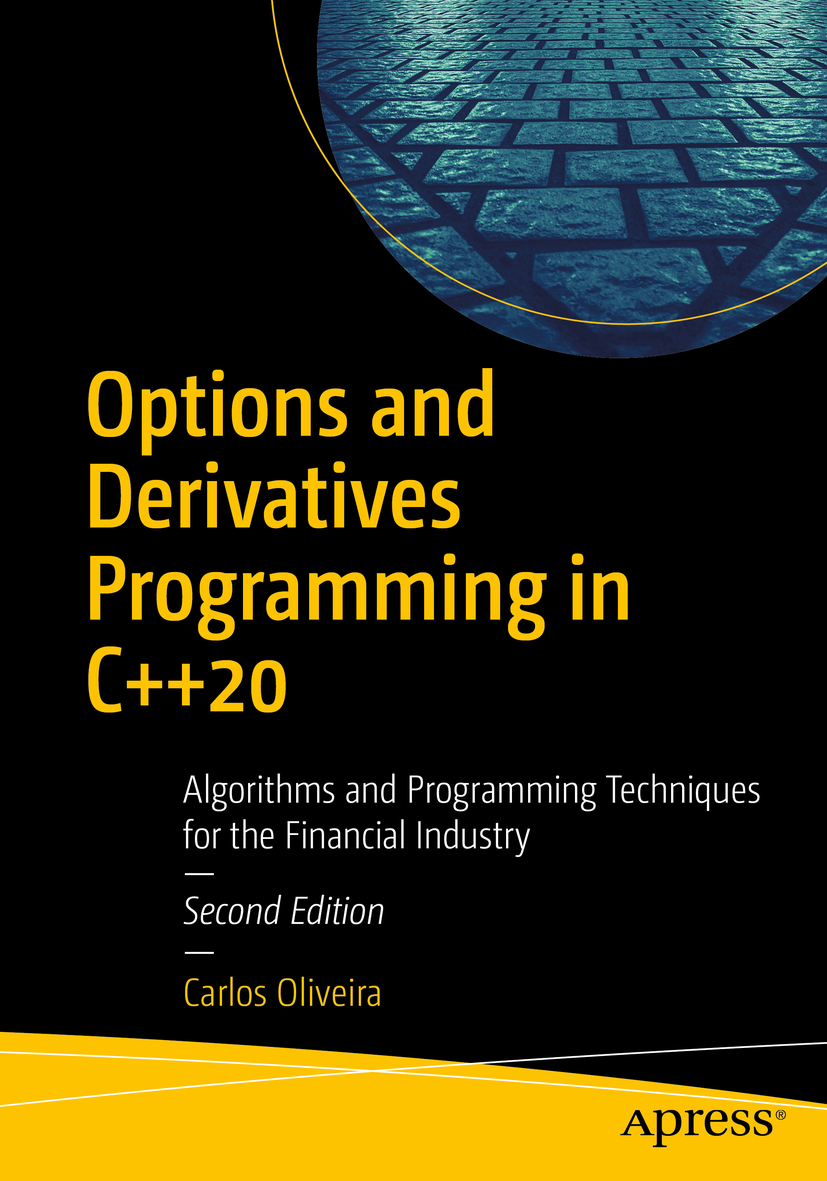Carlos Oliveira
Seattle, WA, USA
Any source code or other supplementary material referenced by the author in this book is available to readers on GitHub via the books product page, located at www.apress.com/9781484263143 . For more detailed information, please visit http://www.apress.com/source-code .
ISBN 978-1-4842-6314-3 e-ISBN 978-1-4842-6315-0
https://doi.org/10.1007/978-1-4842-6315-0
Carlos Oliveira 2020
This work is subject to copyright. All rights are reserved by the Publisher, whether the whole or part of the material is concerned, specifically the rights of translation, reprinting, reuse of illustrations, recitation, broadcasting, reproduction on microfilms or in any other physical way, and transmission or information storage and retrieval, electronic adaptation, computer software, or by similar or dissimilar methodology now known or hereafter developed.
The use of general descriptive names, registered names, trademarks, service marks, etc. in this publication does not imply, even in the absence of a specific statement, that such names are exempt from the relevant protective laws and regulations and therefore free for general use.
The publisher, the authors and the editors are safe to assume that the advice and information in this book are believed to be true and accurate at the date of publication. Neither the publisher nor the authors or the editors give a warranty, expressed or implied, with respect to the material contained herein or for any errors or omissions that may have been made. The publisher remains neutral with regard to jurisdictional claims in published maps and institutional affiliations.
Distributed to the book trade worldwide by Apress Media, LLC, 1 New York Plaza, New York, NY 10004, U.S.A. Phone 1-800-SPRINGER, fax (201) 348-4505, e-mail orders-ny@springer-sbm.com, or visit www.springeronline.com. Apress Media, LLC is a California LLC and the sole member (owner) is Springer Science + Business Media Finance Inc (SSBM Finance Inc). SSBM Finance Inc is a Delaware corporation.
Introduction
On Wall Street, the use of algorithmic trading and other computational techniques has skyrocketed in the last few years, as can be seen from the public interest in automated trading as well as the profits generated by these strategies. This growing trend demonstrates the importance of using software to analyze and trade markets in diverse areas of finance. One particular area that has been growing in importance during the last decade is options and derivatives trading.
Initially considered only as a niche investment strategy, derivatives have become one of the most common instruments for investors in all areas. Likewise, the interest in automated trading and analysis of such instruments has also increased considerably.
Along with scientists and economists, software engineers have greatly contributed to the development of advanced computational techniques using financial derivatives. Such techniques have been used at banks, hedge funds, pension funds, and other financial institutions. In fact, every day new systems are developed to give a trading advantage to the players in this industry.
This books attempts to provide the basic programming knowledge needed by C++ programmers working with options and derivatives in the financial industry. This is a hands-on book for programmers who want to learn how C++ is used to develop solutions for options and derivatives trading. In the books chapters, youll explore the main algorithms and programming techniques used in the implementation of systems and solutions for trading options and other derivatives.
Because of stringent performance characteristics, most of these trading systems are developed using C++ as the main implementation language. This makes the topic of this book relevant to everyone interested in acquiring the programming skills necessary in the financial industry.
In Options and Derivatives Programming in C++20, I cover the features of the language that are more frequently used to write financial software for options and derivatives. These features include the STL, templates, functional programming, and support for numerical libraries. New features introduced in the latest updates of the C++ standard are also covered, including additional functional techniques such as lambda functions, automatic type detection, custom literals, and improved initialization strategies for C++ objects.
I also provide how-to examples that cover the major tools and concepts used to build working solutions for quantitative finance. The book teaches you how to employ advanced C++ concepts as well as the basic building libraries used by modern C++ developers, such as the STL, Boost, and QuantLib. I also discuss how to create correct and efficient applications, leveraging knowledge of object-oriented and template-based programming. I assume only a basic knowledge of C and C++. Throughout this book, a number of more advanced concepts, already mastered by experienced developers, will be introduced as needed.
In the process of writing this book, I was also concerned with providing value for readers who are trying to use their current programming knowledge in order to become proficient at the style of programming used in large banks, hedge funds, and other investment institutions. Therefore, the topics covered in the book are introduced in a logical and structured way. Even novice programmers will be able to absorb the most important topics and competencies necessary to develop in C++ for the problems occurring on the analysis of options and other financial derivatives.
In this book, we also discuss features introduced in the latest international standard, C++20. In this version of the standard, a number of simplifications and extensions of the core C++ language have been approved. You will learn about many of the features in the new standard, with examples to illustrate each major concept. An appendix has been included, with detailed information about standard features added to C++ during the last decade.
Audience
This book is intended for readers who already have a working knowledge of programing in C, C++, or another mainstream language. These are usually professionals or advanced students in computer science, engineering, and mathematics, who have interest in learning about options and derivatives programming using the C++ language, for personal or for professional reasons. The book is also directed at practitioners of C++ programming in financial institutions, who would use the book as a ready-to-use reference of software development algorithms and best practices for this important area of finance.
Many readers are interested in a book that would describe how modern C++ techniques are used to solve practical problems arising when considering options on financial instruments and other derivatives. Being a multi-paradigm language, C++ usage may be slightly different in each area, so the skills that are useful for developing desktop applications, for example, are not necessarily the same ones used to write high-performance software.

